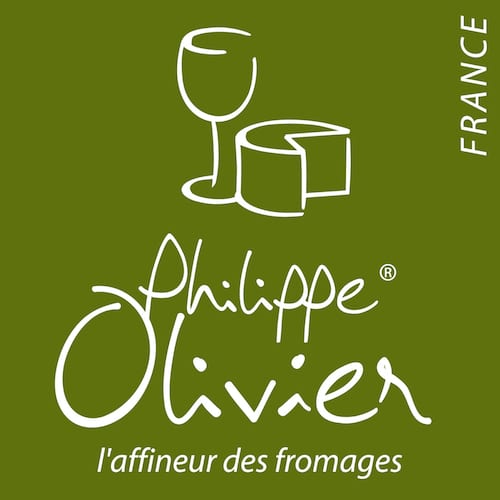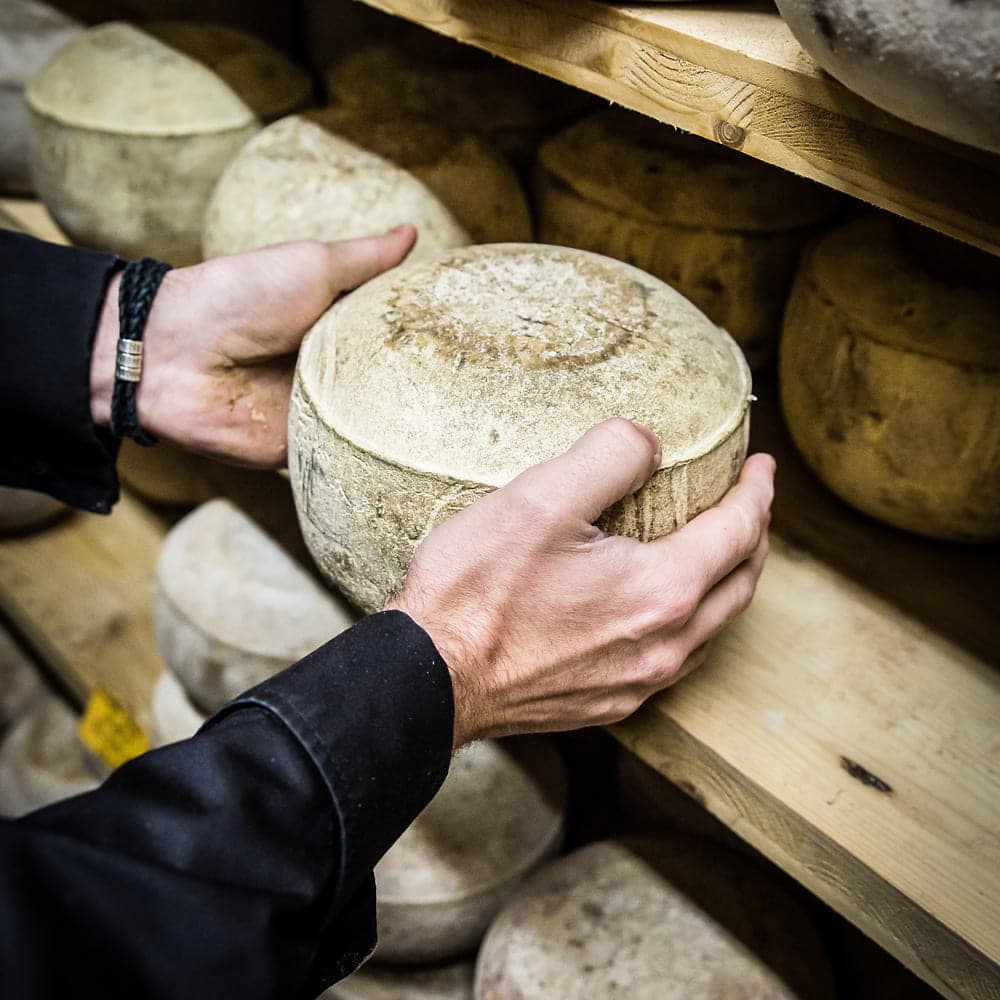It's true that, with some 400 varieties, France is the country of cheeses par excellence and, along with Greece, one of the world's two leading cheese consumers, consuming some 24 kilos per person per year. But local cheese has to face up to competition from industrial production. By mobilizing several hundred cheesemakers for this 7th edition, National Cheese Day aims to raise awareness of this heritage among consumers and professionals alike.
Meals organized around cheese, plates of seven to eight varieties of seasonal cheese for the symbolic price of 1 euro, awareness-raising campaigns for students at catering schools, the dispatch of "snack boxes" for French people living abroad, to be collected from embassies, mainly in European countries, and poems about cheese written by schoolchildren: these are just some of the events organized for this National Cheese Day, in fact a long weekend showcasing local cheeses.
"Fromages de terroirs" is the name of the association founded by Véronique Richez-Lerouge, who initiated this national event, which grows in scope every year. From a dozen at the first event, some 300 cheesemakers are taking part this year.
Philippe Olivier, a cheesemaker in Boulogne-sur-mer, northern France, was one of the first militants. For over thirty years, in France and abroad, he has been defending this heritage to which his family has been attached for exactly one hundred years. RFI met him.
How has cheese consumption changed over the last few decades?
In the 1950s, 60s and 70s, cheese consumption grew significantly. In 1900, France consumed 3 kilos of cheese per inhabitant per year, in 1950 8 kilos, and today 24 kilos. Unfortunately, most of the growth has been in industrial, dairy-type cheeses, while local cheeses, the cheeses of our terroirs, the cultural and historical cheeses - some of which have been made for over a thousand years - that are part of our heritage, have been left to one side. But over the past 4 or 5 years, we've seen a return to this type of cheese. A cheese that brings a table together, around good products, for a meal that doesn't require a great deal of preparation: cheese, salad, bread, wine and a basket of fruit, and you've got a meal fit for a king. The great thing about cheese is that it's ready to enjoy.
What are the basic rules for making a genuine local cheese?
First of all, the rhythm of the seasons. This is an extremely important point. When I see "hot goat's cheese on salad" on a restaurant menu at the end of the year, even though that's when goats don't give milk, I'm always a bit shocked. I insist on this point: cheese is a seasonal, living product, and therefore irregular. And the irregularity of a cheese's taste is a quality.
Getting back to what makes a good cheese, there's the breed of the animal, hence the importance of maintaining local breeds. There's also the shortest possible time between the end of milking and the start of production, raw milk (because pasteurized milk is dead milk, and with dead milk you'll never get a tasty cheese), then maturing and, as I said at the outset, the season. And it's these cheeses that are likely to be threatened, simply because in France, we don't realize how extraordinary this heritage is.
As a cheesemaker in the north of France, you've created a special beer to drink with these cheeses.
Yes, the "bière à Frometon". During meetings in Normandy, in Cambremer, we had several tastings of local camemberts with different ciders, and we realized that there were ciders for tarts, ciders for cooking chicken, and ciders for cheese. When I came back from one of these meetings about ten years ago, I said to myself: "In the north, our cider is beer"... So I started to get in touch with some Belgian cheese-maker friends, and then I wrote a book on the marriage of beer and cheeses from the North, which we researched and worked on. The result was Frometon beer, for which I registered the name. Frometon is a technical term borrowed from my father, a cheese-maker in Normandy. A beer that we now send all over Europe for cheese tasting.
What about wine? Is white wine the trend now?
When you do a blind tasting with professionals, you realize that over 70% of cheeses go better with a white wine than a red. I always say that what you shouldn't do is buy your cheeses and go see your wine merchant. You have to do the opposite. You choose your wine, a Jura wine, for example, and then you try to buy the cheeses that go with it: a Munster, a Comté, a Morbier, a Mont-Dore if it's in season, or a Saint-Marcelin.
We also associate sweet with savoury, including cheese.
We're moving towards pairing fruit with cheese, confits with cheese, and also towards increasingly sweet wines to accompany cheese: blue-veined pasta (like blue cheese) with a Sauterne or a late harvest... There's an evolution taking place in this direction, sometimes with quite astonishing surprises...
Cheese runs in the family?
Yes, one hundred years ago this year. My grandfather was a farmer between Rouen and Dieppe. But he couldn't make a living from the land, so he left to set up as a grocer-cheesemonger. In 1907, a grocer was someone who made his own jams, received his vinegars and bottled them, salted his butter and received sugar in 50-kilo bags and packed them. He sold Normandy cheeses, plus Comté, Roquefort, Brie... It was limited. It's true that people didn't travel much in those days...
The creation of the railroads contributed to the cheese boom, as did the first vacations. Why were Auvergne cheeses so well known in Paris? Thanks to the bougnats, but also to the cures at La Bourboule: once back home, people wanted to buy the cheeses they'd tasted there.
My grandfather was in Rouen, my uncles were also crémiers-fromagers, and my father settled in Dieppe, on the Normandy coast. My eldest brother took over the business, and I moved to Boulogne-sur-mer, another northern port above Dieppe, and started out alone in a small butcher's shop. And today there are 17 of us... And that's it.
And there's the next generation?
My nephew took over the business in Rouen, a niece, my father's and then my brother's in Dieppe, and I have a son in Boulogne who, after studying in Paris, decided to go into the cheese business. When I told him he could do something else, he replied that working with small-scale farmers was an unforgettable memory and a pleasure he wouldn't find anywhere else.
The French cheese tradition is being exported. There's even a French cheese day in Japan...
I went to Japan for the first time 20 years ago. At the time, French cheese consumption was around 180 to 200 grams per capita per year. Today, it must be around 2 kilos. I certainly had one of the first cavistes in my house, who came for six months to learn how to work in the cellars. I'm surprised, because twenty years ago, tasting a Maroilles, a Munster or an Epoisse affiné, they didn't mind at all... And today, one of the most technical books on cheese was written by a Japanese woman, who travelled around France with a photographer and an assistant for two years.
With fashion, cuisine and its great chefs, wine and champagne, we should be talking a little more about cheese... When the French leave the country to work at the other end of the world, nothing pleases them more than a gift... believe me!


